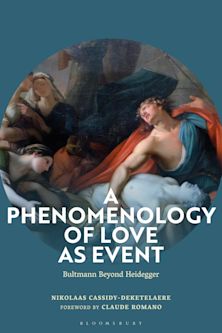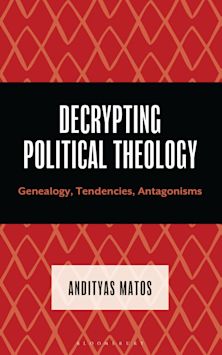- Home
- ACADEMIC
- Philosophy
- Philosophy of Religion
- Four Views on the Axiology of Theism
Four Views on the Axiology of Theism
What Difference Does God Make?
Four Views on the Axiology of Theism
What Difference Does God Make?
You must sign in to add this item to your wishlist. Please sign in or create an account
Description
A 2021 Choice Outstanding Academic Title
For centuries, philosophers have addressed the ontological question of whether God exists. Most recently, philosophers have begun to explore the axiological question of what value impact, if any, God's existence has (or would have) on our world.
This book brings together four prestigious philosophers, Michael Almeida, Travis Dumsday, Perry Hendricks and Graham Oppy, to present different views on the axiological question about God. Each contributor expresses a position on axiology, which is then met with responses from the remaining contributors. This structure makes for genuine discussion and developed exploration of the key issues at stake, and shows that the axiological question is more complicated than it first appears. Chapters explore a range of relevant issues, including the relationship between Judeo-Christian theism and non-naturalist alternatives such as pantheism, polytheism, and animism/panpsychism. Further chapters consider the attitudes and emotions of atheists within the theism conversation, and develop and evaluate the best arguments for doxastic pro-theism and doxastic anti-theism.
Of interest to those working on philosophy of religion, theism and ethics, this book presents lively accounts of an important topic in an exciting and collaborative way, offered by renowned experts in this area.
Table of Contents
1. Introduction to the Axiology of Theism: The Current Debate and Future Directions, Kirk Loughleed (McMaster University, Canada)
2. On Discovering God in the Pluriverse, Michael Almeida (University of Texas at San Antonio, USA)
Commentaries on Almeida
Reply to Commentaries
3. The Axiology of Theism: Expanding the Contrast Classes, Travis Dumsday (Concordia University, Canada)
Commentaries on Dumsday
Reply to Commentaries
4. Skeptical Theism, Pro-Theism, and Anti-Theism, Perry Hendricks (Purdue University, USA)
Commentaries on Hendricks
Reply to Commentaries
5. Naturalistic Axiology, Graham Oppy (Monash University, Australia)
Commentaries on Oppy
Reply to Commentaries
Index
Product details

| Published | 17 Sep 2020 |
|---|---|
| Format | Ebook (PDF) |
| Edition | 1st |
| Extent | 192 |
| ISBN | 9781350083547 |
| Imprint | Bloomsbury Academic |
| Publisher | Bloomsbury Publishing |
About the contributors
Reviews
-
This book is required reading for philosophers of religion, and readers more generally interested in philosophy may be intrigued by the explorations within this clearly argued volume.
CHOICE
-
This is a fantastic book on the important question of whether God's existence would make the world a better or worse place to be. The back-and-forth dialogue among the contributors provides a helpful venue for their new insights to be thoroughly discussed.
W. Paul Franks, Associate Professor of Philosophy, Tyndale University, Canada
-
What axiological value, if any, does the existence of God have? This volume presents lively philosophical dialogues that directly tackle this neglected question and Lougheed brings together a group of outstanding scholars who represent diverse perspectives. This important book will launch a new phase of the scholarly debate on the existence of God.
Yujin Nagasawa, H. G. Wood Professor of the Philosophy of Religion, University of Birmingham, UK
-
The four papers in this volume are by outstanding scholars, and they address an important but underexplored topic: the axiology of theism. Each paper breaks new ground. Readers will find the commentaries by each author on the others' work, together with replies, particularly valuable.
Klaas J. Kraay, Professor of Philosophy, Ryerson University, Canada

ONLINE RESOURCES
Bloomsbury Collections
This book is available on Bloomsbury Collections where your library has access.



































